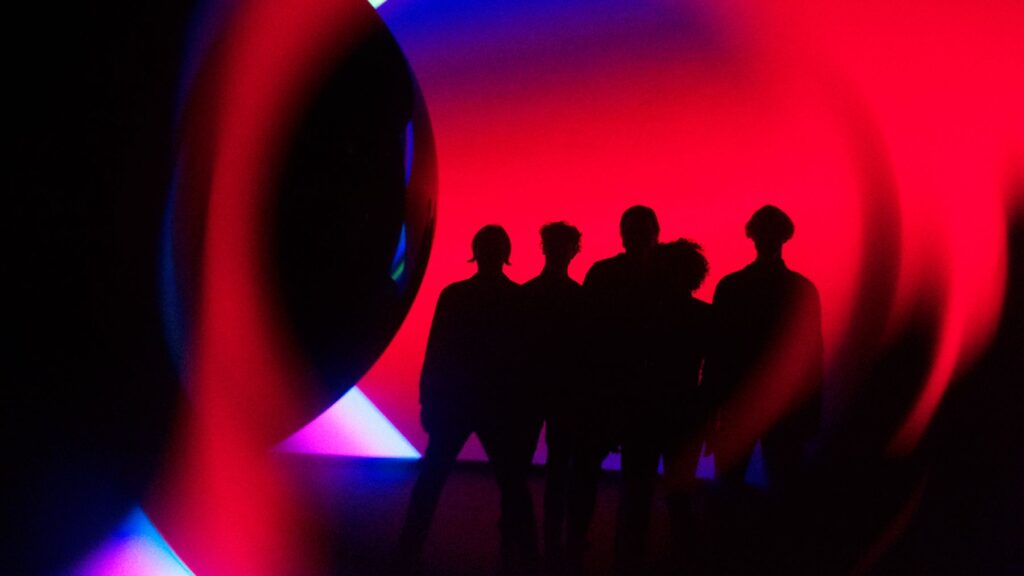
Arcade Fire Perform Their Black Hole Song at Event Celebrating First Photo of the Black Hole at the Center of Our Galaxy
Arcade Fire were on hand to celebrate a scientific achievement that’s equal parts awe-inspiring and bone-chilling — the first ever photo of the black hole at the center of our galaxy. And the reason for Arcade Fire’s presence? One of the songs on their new album, We, “End of the Empire IV (Sagittarius A*)” happens to namedrop that supermassive black hole, known as Sagittarius A*.
Arcade Fire’s Win Butler and Régine Chassagne appeared on a livestream May 12 hosted by the European Southern Observatory and Event Horizon Telescope project (the latter is the global collaborative effort that captured the image of Sagittarius A*). The pair performed a pared-back piano-and-guitar rendition of the tune, which includes two references to the black hole: First, when Butler sings, “One Christ child and one on the way/Why don’t we name her Sagittarius A*/What a pretty name”; and later as the song ends, “And the space where they say/Heaven is has gone away/Sagittarius A*/We’ll see one day/What’s on the other side.”
We finally have the first look at our Milky Way black hole, Sagittarius A*. It’s the dawn of a new era of black hole physics. Credit: EHT Collaboration. #OurBlackHole #SgrABlackHole
Link: https://t.co/Ax7ECRVg8A pic.twitter.com/LRWizSYOy9— Event Horizon 'Scope (@ehtelescope) May 12, 2022
Prior to the performance, Butler spoke about how the song and the Sagittarius A* reference came about, saying, “To me it’s almost symbolic of, there’s so much we don’t know about ourselves and our planet. When I was reading about Sagittarius A* it just sort of spoke to me as this enormous thing at the center of our galaxy that we don’t fully understand, that we’re trying to understand better.”
Butler also noted that album art of We features a cameo from the only other supermassive black hole to be photographed before Sagittarius A*, Messier 87. “An image of it is on the back our LP. We sort of superimposed it with an image of a human eye, very close, and there’s a lot of links between the stars and ourselves,” he said.




